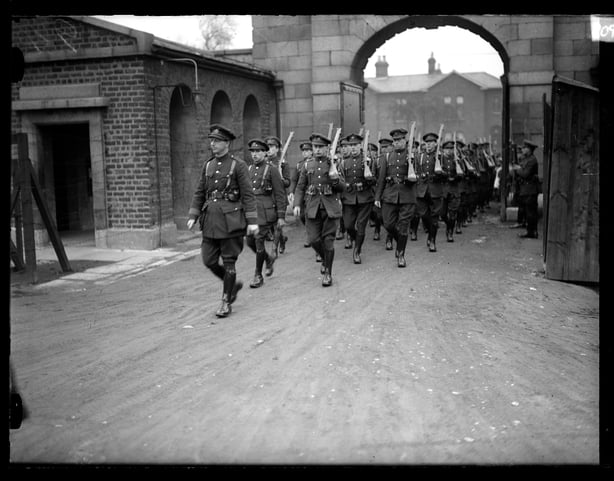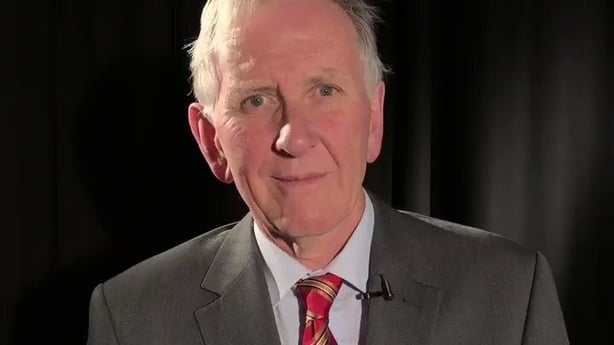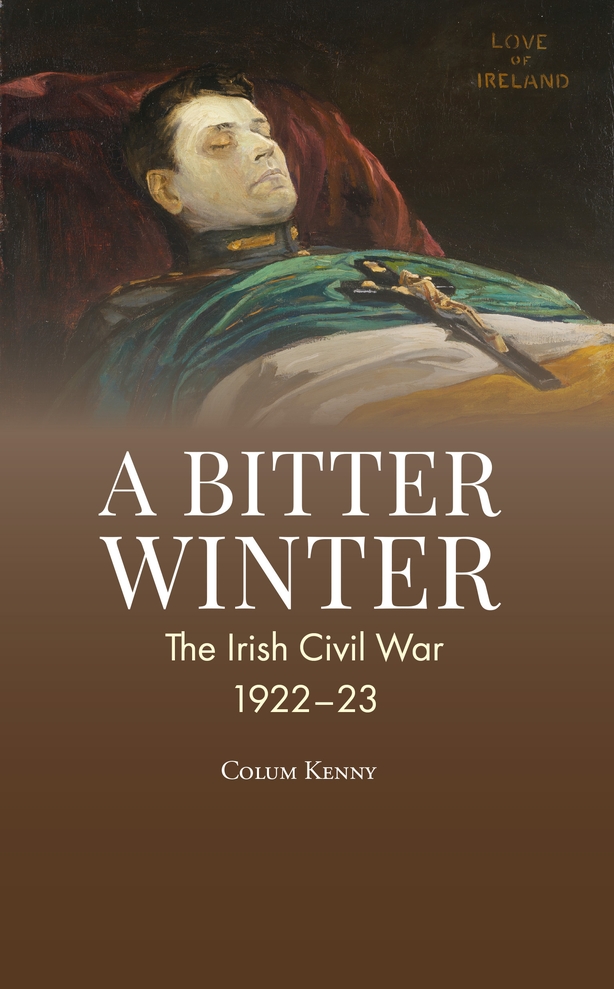We present an extract from A Bitter Winter, the new book from journalist, barrister and historian Colum Kenny.
In this challenging account of the Irish Civil War, Colum Kenny sets out relevant tragic events of 1922 to 1923 in a clear and succinct way, highlighting in graphic detail the key moments of a war between former friends. Arguing that it is not possible to suspend judgement about a dispute that threatened the democratic foundation of the Irish state, and gave solace to its enemies, he presents an analysis of what happened during those two turbulent years.
De Valera's Warnings
In March 1922, the Cork Examiner reported that Éamon de Valera had just given a speech to a crowd of about two thousand people in Carrick-on-Suir, Co. Tipperary. Accompanied by armed IRA members, he warned, 'If Ireland accepts the Treaty then full freedom can be got only by civil war in Ireland.’ He added, ‘If the Treaty is accepted the fight for freedom will still go on, and the Irish people, instead of fighting foreign soldiers, will have to fight the Irish soldiers of an Irish Government, set up by Irishmen. If the Treaty is not rejected perhaps it is over the bodies of the boys and young men he saw around him that day the fight for Irish freedom may be fought.’
On 17 March, the Irish Times quoted de Valera saying, ‘If you don’t fight to-day you will have to fight to-morrow, and I say, when you are in a good fighting position, then fight on.’ The Irish Independent reported that at Dungarvan he proclaimed, ‘It was only by civil war after this they could get their independence.’ At Thurles (as the Irish Independent of 18 March, and other papers later, reported) he said that if the Treaty was accepted, then the Volunteers of the future would ‘have to wade through Irish blood, through the blood of soldiers of the Irish Government, and through, perhaps, the blood of some of the members of the Government in order to get Irish freedom’.
Yet he had struck a different note the previous year when, as president of the Dáil, he was trying to set up Treaty talks with the British. In the Dáil on 23 August 1921, just weeks after a truce in the War of Independence was declared, he forecast disagreements, ‘It is obvious that whenever there are negotiations, unless you are able to dictate terms you will have differences. Therefore it is obvious you will have sharp differences. The policy of the Ministry (his Cabinet) will be that which they consider would be best for the country. The Ministry itself may not be able to agree and in such a case the majority would rule.’ He likewise acknowledged then that ‘If the plenipotentiaries go to negotiate a treaty or a peace, seeing that we are not in the position that we can dictate the terms, we will, therefore, have proposals brought back which cannot satisfy everybody, and will not.’

(Credit: RTE Photographic Archive, the Cashman Collection)
From further newspaper reports, it appears that on 19 March 1922, de Valera in Killarney warned, ‘Those who wanted to get on and travel on the road to achieve freedom, such as those men present with their rifles, would have in the future not merely the foreign soldiers to meet, but they would have to meet the forces of their own brothers, their fellow-countrymen, who would be supporting the government’ (Irish Independent, Nationalist and Freeman’s Journal, 20 March). According to the Cork Examiner of 20 March, he also declared at Killarney that weekend that ‘The people had never a right to do wrong. He was certain that the same pluck which had carried them so far would enable them to finish (cheers).’
On 21 March 1922, the political correspondent of the Irish Times wrote that ‘Mr. de Valera’s wild speeches, with their threats of civil war, have been read everywhere with amazement, in view of his earlier declarations – especially that in Paris during the Race Congress, in which he declared that there would be no internal dissensions, and that the will
of the people must prevail.’ De Valera purported to distinguish between warnings and threats and, in Dáil Éireann on 19 May 1922, he said, ‘I denied in the Irish Independent that I made this statement [about wading through Irish blood, including that of government ministers], and the thousands of people who listened to me know it is a lie.’ Séamus Robinson, an anti-Treaty deputy and IRA commander in Tipperary, told the Dáil that he had been present and he backed de Valera’s version. However, in his letter to the Irish Independent published by that paper on 23 April 1922, de Valera had actually quoted and appeared to confirm that he made at Thurles statements about wading through the blood of Irish soldiers and government ministers, while in the letter also claiming ‘This a child might understand, but you [editor] depart from its plain meaning in order to give the infamous lead in misrepresentation.’ He did not deny saying the words.

John Bowman has observed that de Valera ‘never lost his genius for the bespoke formula’ (De Valera and His Times, ed. J.P. O’Carroll and J.A. Murphy, 2nd ed., 1986, p. 191) and Ronan Fanning references the ‘fudge characteristic of other pedantic compromises that studded his political career’ (RIA, Dictionary of Irish Biography at de Valera). De Valera sought, for example, to explain his refusal to go to London for the Treaty negotiations in various ways. And the oath that was an insurmountable obstacle in 1922 turned out to be not such when he later entered the Dáil with his new Fianna Fáil party in 1927. As late as 26 April 2006, in the Irish Times, his grandson Éamon Ó Cuív TD, then a Fianna Fáil minister, claimed that to believe that Fianna Fáil took the oath in 1927 ‘means that you believe that a person can take an oath without taking the Bible in their hand and swearing by Almighty God to uphold some matter’. It was, he added, ‘well-recorded that the Republicans entered the Dáil without taking the oath, and simply signed a book in which the words of the oath were written’.
In April 1922, Poblacht na h-Éireann – Republic of Ireland (a paper founded to support de Valera) published a crude satire of the Treaty negotiations that included its narrator proclaiming, ‘We’ll not have this treaty executed. Let us rather execute the man who signed it for us behind our backs.’ In Dáil Éireann, on 27 April 1922, Arthur Griffith described this article as ‘a deliberate incitement to the assassination of the plenipotentiaries’. Griffith also quoted then some words attributed by William Henry Curran to his father James Philpot Curran, leading counsel in 1798 for the United Irishman rebel Oliver Bond, when some of the soldiers thronging the court for the state trial clashed their arms and interrupted Bond’s defence: ‘You may assassinate, but you shall not intimidate me.’

A Bitter Winter is published by Eastwood Books - find out more here.

